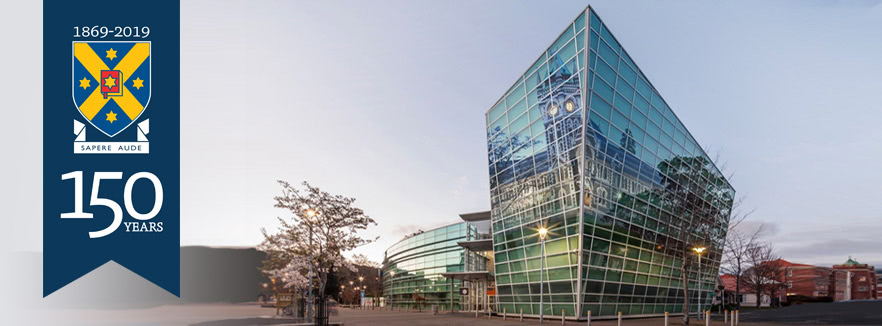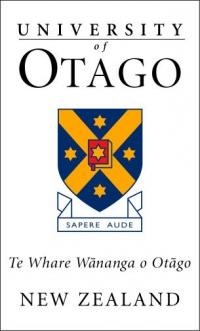Master of Medical Science (MMedSc)
Applicants for the degree of Master of Medical Science (MMedSc) must hold a Bachelor of Medical Science with Honours (BMedSc(Hons) or Bachelor of Medicine and Bachelor of Surgery (MB ChB) or an alternate qualification acceptable to the Otago Medical School Academic Board, normally another medical degree (e.g. MBBS) and be eligible for University study in New Zealand. This may mean holding appropriate visa status with the New Zealand Immigration Service – see the International Office page for further information.
The degree involves a year of full-time research in any field of medical science, often a clinical discipline, at Master's level. A thesis is submitted. This in-depth study by the medical graduate is often the first step towards a higher degree; e.g. a PhD and a research/academic career.
Information for new applicants
The MMedSc degree is a one-year full-time (or part-time equivalent) research degree involving a supervised investigation in a branch of medical science. A candidate shall normally follow a programme of study for the equivalent of not less than one year of full-time study and not more than two years of full-time study. Exceptions shall be permitted only with the approval of the Pro-Vice Chancellor (Health Sciences).
Applicants should check their eligibility for admission with the Manager of the Otago Medical School. If eligible, applicants should then approach a department of the Otago Medical School (i.e. from the University of Otago Wellington, the University of Otago Christchurch, the Dunedin School of Medicine or the School of Biomedical Sciences) in order to discuss their proposed topic and to secure supervisors and a supporting department. If a department can provide the necessary support and supervision for the candidate to carry out his/her research the candidate may proceed to the online application process.
With the application, brief outlines of the proposed area of study and project approach are required:
Background: This should provide a very brief description of the purpose of the study.
Proposed Methods: Brief detail of the methodological approaches should be provided. This should include patient recruitment where relevant, sample collection, types of analyses to be performed etc.
Analysis of Results: A brief description of the proposed methods for analysing/summarising the data acquired as a result of the study.
Potential Outcomes of the Study and Future Relevance: This section should provide a brief description of possible outcomes of the study, and the potential scientific and health implications for the future.
Campus Information
Christchurch
Available through the Christchurch campus are: Health Sciences, Otago Medical School, Clinical training, School of Physiotherapy (Clinical education), Research, Distance education, Postgraduate education
Dunedin
The University of Otago main campus is located in Dunedin. The Dunedin campus includes: Central administration Four academic divisions: Business, Health Sciences, Humanities, Sciences
Wellington
Available through the Wellington campuses are : Health Sciences, Otago Medical School (Clinical training), School of Physiotherapy (Clinical education), Research, Distance education, Postgraduate education, Course information and advice
Intakes
- Feb
- July
Application Processing Time in Days: 30
Minimum English Language Requirements
| English Level Description | IELTS (1.0 -9.0) | TOEFL IBT (0-120) | TOEFL CBT (0-300) | PTE (10-90) | |
|---|---|---|---|---|---|
| Expert | 9 | 120 | 297-300 | 86-90 | |
| Very Good | 8.5 | 115-119 | 280-293 | 83-86 | |
| Very Good | 8 | 110-114 | 270-280 | 79-83 | |
| Good | 7.5 | 102-109 | 253-267 | 73-79 | |
| Good | 7 | 94-101 | 240-253 | 65-73 | |
| Competent | 6.5 | 79-93 | 213-233 | 58-65 | |
| Competent | 6 | 60-78 | 170-210 | 50-58 | |
| Modest | 5.5 | 46-59 | 133-210 | 43-50 | |
| Modest | 5 | 35-45 | 107-133 | 36-43 | |
| Limited | 4 | 32-34 | 97-103 | 30-36 | |
| Extremely Limited | < 4 | < 31 | < 93 | < 30 |
Job Opportunity Potential
We encourage all students – including International students – to make use of the career resources available on our website. From exploring your career options to specific job search strategies, you’ll find the information you need to establish your future career. You’ll also find information on this page specifically targeted at International students.
Get help with:
Career planning: Explore your career and study options
Job Applications: CV and cover letters, interview skills and applying for work
Gaining Experience: Get the ‘right’ skills, enhance your Otago experience… and volunteer.
Finding Employment: Job search strategies, career events and looking for work
Speak to a career adviser one-on-one if you need further assistance.
Enhance your employability
The graduate job market is competitive – good grades alone may not be enough to get your ideal job. You’ll also be expected to possess excellent English language skills, and be able to demonstrate a range of work-related skills and personal qualities relevant to the job. Develop the required skills through:
Work experience – gain part-time work, voluntary work, summer placements, or internships
Extracurricular activities – get involved in activities outside your course such as student societies and sporting clubs
Academic activities – show your capabilities by, for example, leading a group project or being a student representative for your course
PSW Opportunity
- During study, all students on a student visa can work up to 20 hours per week during semester and full time during vacations.
- After completing Level 7 Bachelor’s Degree or Higher Qualification, a student will get a three years open post-study work visa.
- After completing Level 8 Post Graduate courses of 1 year, students get 1 year PSW.
Admission Requirement / Eligibility Criteria
A master’s degree is usually undertaken in the same area of study as the major subject
pursued for a bachelor’s degree, postgraduate diploma or honours degree. However,
some masters’ programmes require only that the candidate is a graduate and/or has
appropriate work experience.
IELTS
Score of 6.5 in the academic module (with no individual band below 6.0)
IELTS Indicator test
This is an online version of the regular IELTS test, made available due to COVID-19 testing centre restrictions.
Paper-based TOEFL
Score of 587 (TWE 4.5).
TOEFL iBT Special Home Edition
This is an online version of the regular TOEFL iBT test, made available due to COVID-19 testing centre restrictions.
Cambridge Certificate of Proficiency in English (CAE)
Minimum of 176 (with no individual band below 169)
Duolingo English Test (DET)
Score of 110
Pearson Test of English (PTE) Academic
Overall score of 64 with no communicative skills score below 57
- Course Type: Part Time
- Course Level: Masters/PG Degree
- Duration: 02 Year
-
Total Tuition Fee:
42696 NZD
Annual Cost of Living: 20000 NZD
Application Fee: N/A
Similar Programs
- Master of Science (MSc) in Pharmacology at University of Otago
- Master of Biomedical Sciences (MBiomedSc) at University of Otago
- Master of Wildlife Management (MWLM) at University of Otago
- Master of Science Communication (MSciComm) at University of Otago
- Master of Science (MSc) at University of Otago
- Master of Applied Science (MAppSc) at University of Otago

